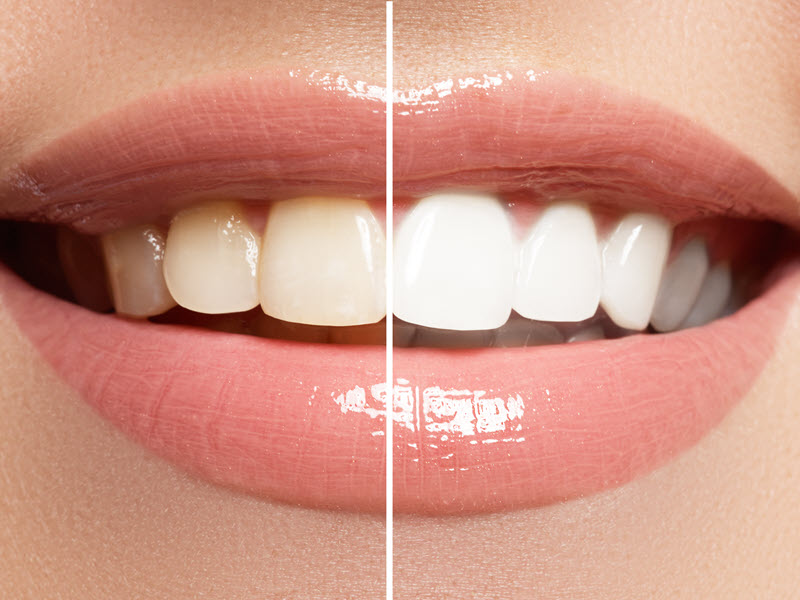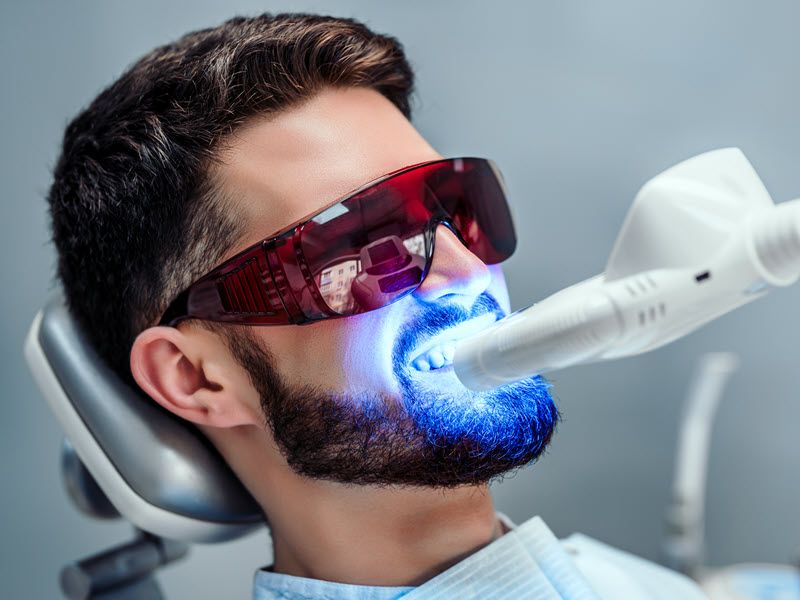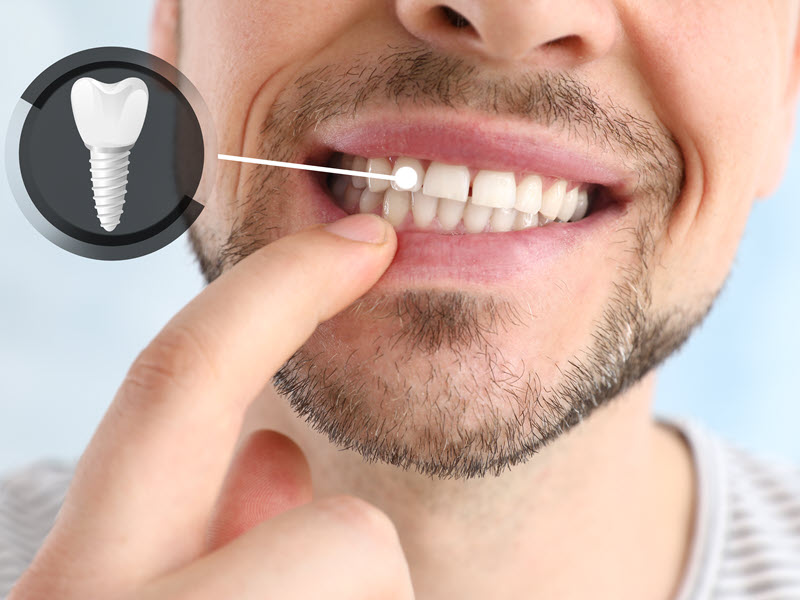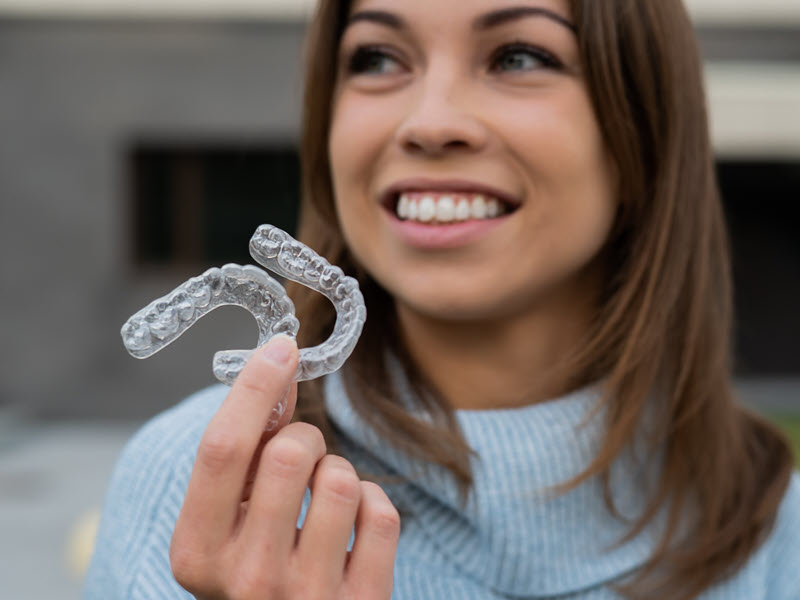Overview of Dental Restorations
The question sometimes comes up in our office: What is the difference between veneers and dental implants? In reality, each has a completely different purpose. A dental implant is a dental restoration procedure, while veneers are a cosmetic procedure. We’ll start off by discussing the dental implant restoration process, followed by the cosmetic veneer process.
Dental restorations aim to improve dental health and function. They repair or replace damaged or missing teeth to assist in the actual functioning of your teeth. There are many different types of dental restorations – many of which are described below.
Types of Restorations:
- Fillings: Fix cavities and restore tooth structure.
- Crowns: Cover damaged teeth and protect them.
- Bridges: Replace missing teeth using adjacent teeth for support.
- Dentures: Removable replacements for missing teeth.
- Dental Implant: Permanent solution for a lost tooth, involving a surgical procedure.
Different types of dental procedures cater to varying needs, whether structural or cosmetic.
Material Considerations for Dental Restorations
Materials used in dental restorations vary based on the type of restoration.
Common Materials:
- Amalgam: Used in fillings, durable, affordable.
- Composite Resin: Tooth-colored, blends well, used in fillings and veneers.
- Porcelain: Used for crowns and dental veneers, looks like natural teeth, stain-resistant.
- Metal Alloys: Often used in crowns and bridges, very strong.
- Titanium: Used in dental implants, biocompatible, integrates with the bone.
Selecting the right material impacts the restoration’s durability, function, and appearance.
Determining the Right Choice
Choosing the best dental restoration depends on your specific needs and situation. You will work together with your dentist to come up with what works best for your needs. In our Fort Collins dental office, this means that you’ll be examined by Doctor Murphy to discuss your dental restoration options and come up with a plan that works best for you.
Factors to Consider for dental restorations:
- Condition of Teeth: Extent of damage or decay.
- Function: Importance of chewing efficiency.
- Appearance: Desired aesthetic outcome.
- Durability: Longevity of the restoration method.
- Cost: Budget and willingness to invest.
Understanding Dental Implants

Dental Implants Can Replace the Functionality (and the Appearance) of Missing Teeth
Dental implants are a popular solution for replacing missing teeth. They involve a multi-step process and require proper care to ensure long-term success.
Implant Components
Historically, dental implants have three main parts: the post, the abutment, and the crown. The titanium post gets surgically placed into your jawbone. This acts as a root for the missing tooth. The abutment connects the titanium post to the crown. The crown is the visible part that looks like your natural tooth. Each component plays a critical role in the implant’s stability and durability.
The Procedure
A dental implant serves as a tooth replacement option for a severely damaged existing tooth or for a missing tooth. If your existing tooth is beyond repair, you will need to have a tooth extraction prior to starting the dental implant process.
The implant process involves several steps. First, the dentist surgically places a titanium post into your jawbone. If you have low bone density or bone loss, bone grafting may be necessary. After the implant surgery, osseointegration occurs. This means the bone fuses with the titanium post. This can take several months. Once osseointegration is complete, an abutment gets attached to the post. Finally, a custom-made crown is placed on top.
Side Note: Note that with emerging technologies, this dental procedure process is continually evolving and becoming easier for patients. Dr. Murphy is currently implementing a new Implant process involving IBS/Magicore that involves a combined post/abutment being placed. This combination piece cuts down on the overall steps required for implant placement.
Post-Operative Care and Maintenance
Proper care after getting dental implants is crucial. Your dentist will provide specific instructions. These may include avoiding certain foods and maintaining good oral hygiene. You should brush and floss daily and use antiseptic mouthwash. Regular check-ups are important to monitor your implant. Long-term maintenance of your dental implants by following your dentist’s instructions ensures durability and prevents complications.
Veneers: A Cosmetic Dentistry Procedure

There are Many Options to Improve the Appearance of Your Teeth – Including Teeth Whitening and Veneers
Types of Cosmetic Dental Procedures:
- Teeth Whitening: A process that lightens teeth and helps remove stains and discoloration.
- Veneers: Thin, custom-made shells designed to cover the front surface of teeth to enhance their appearance – at our office we offer porcelain veneer and other options
- Dental Bonding: A tooth-colored resin material is applied and hardened with a special light to repair or improve the appearance of a tooth.
- Orthodontics (Braces and Clear Aligners): Devices used to correct misaligned teeth and jaws.
- Gum Contouring: Reshaping the gum line to improve the appearance of the teeth and gums.

Veneers are a Cosmetic Procedure that Can Hide Minor Imperfections and Discolorations
Dental veneers improve the appearance of your teeth by covering cosmetic concerns like discoloration and irregular shapes. To be clear, getting a dental veneer doesn’t “fix” the shape or color of your teeth, veneers cover up your teeth. They effectively hide imperfections by covering them up with a thin covering that looks and feels like natural teeth.
Veneer Types
Veneers come in two main types: porcelain and composite resin. Porcelain veneers are thin, custom-made shells that bond to the front surface of your teeth. They replicate the natural enamel well.
Composite resin veneers are less expensive but not quite as durable as porcelain. Your dentist applies the composite material directly to your teeth and sculpts it into shape.
Regardless of which type of veneer you choose, both types of dental veneers can enhance the color and shape of teeth and effectively address cosmetic issues like stains and gaps.
Fitting and Application
Getting veneers is a two step process. The fitting process begins with the dentist preparing your natural teeth. The dentist will remove a small amount of enamel to make room for the veneer.
For porcelain veneers, the dentist makes a mold of your teeth to create custom shells. In some dental offices, you might get temporary veneers while waiting for the permanent ones.
Once your veneers are ready, the dentist cleans your teeth and applies a special bonding agent. The veneer adheres securely when placed on the tooth. Composite resin veneers go on in layers, cured with a light to harden the material.
Care and Lifespan: Making Your Veneers Last
Proper care ensures veneers last a long time. Brush and floss daily, just like with natural teeth. Avoid using teeth to open packages or chew on hard objects, which can break or crack the veneer.
Porcelain veneers typically last 10-15 years with proper care. Composite resin veneers might need replacement every 5-7 years, depending on wear. Regular dental check-ups help maintain the health of both your veneers and natural teeth.
Maintaining good oral hygiene and avoiding habits like biting your nails help preserve the appearance and integrity of veneers. Proper care plays a key role in their longevity and success in improving your smile.
Comparing Benefits of Veneers vs Implants
There really isn’t a “choice” to be made between dental implants and veneers as each serves a separate purpose. But below, we take a deep dive into the pros and cons of both dental implants and veneers.
Implants vs Veneers: Cosmetic & Functional Benefits
Dental Implants Functional Benefits
Dental implants can replace missing teeth with a secure and stable option. They involve placing a titanium post into the jaw bone, which acts as an artificial root. Over time, this fuses with the bone, providing a durable base for the replacement tooth. When fully integrated into your mouth, dental implants allow you to chew the same food that you could chew with your natural teeth.
Another huge benefit of dental implants is that they can prevent further tooth loss and tooth decay. A missing tooth can result in the degradation of your jawbone. This can result in additional tooth loss of a nearby healthy tooth.. A dental implant anchors to the jawbone which helps to prevent further bone loss and damage to existing teeth.
Dental Implants Cosmetic Benefits
While not a “cosmetic dentistry procedure”, dental implants do provide a cosmetic benefit. They look natural and blend seamlessly with your existing teeth. They can replace what appeared as a missing tooth with a tooth that looks like your natural tooth. Their cosmetic benefit allows you to smile confidently as you no longer have the embarrassment of an unsightly missing tooth.
Veneers Offer Cosmetic Benefits Only
Veneers can improve the appearance of stained, chipped, or uneven teeth. This makes them an excellent choice for cosmetic concerns. Porcelain or ceramic veneers blend well with natural teeth, enhancing your smile’s uniformity. They also correct minor gaps or alignment issues without needing braces.

Veneers can last for 10 years or more with proper care
Implants vs Veneers: Comparison of Dental Procedures
Dental Implants: Long Recovery Time, Long Time Until Implant Procedure is Completed
Dental implants require oral surgery, and all surgeries come with some risks. Infection at the implant site and injury to surrounding teeth are possible. There is a long healing process that takes time to recover from surgery. The placement of the crown for a dental implant takes place many months after
Veneers: A Quicker Process
Veneers can be completed from start to finish generally within a couple of weeks. The process doesn’t involve surgery and is much less invasive – meaning that patients really don’t require much time at all to recover from veneer placements.
Implants vs Veneers: Durability
Porcelain veneers can last up to 15 years – composite veneers can typically only last about half that amount of time. Dental implants can last the rest of your life in certain situations. A lifespan of 30 years or more is not uncommon for dental implants
Implants vs Veneers: Ongoing Maintenance
Both options need regular dental visits to ensure longevity. Veneers can be a bit more delicate and prone to breakage than dental implants. Following instructions from your dentist along with maintaining proper oral health can help both veneers and dental implants last for years.
Dental Implants vs Veneers: Costs
Initial Investment
Dental implants often require a higher upfront cost. The placement, surgery, and materials make them a significant investment. The price can range from $3,000 to $5,000 or more per implant.
Veneers cost less initially. Composite veneers range from $250 to $1,500 per tooth. Porcelain veneers range from $925 to $2,500 per tooth.
Dental Implants vs Veneers: Insurance
Veneers are a cosmetic dentistry procedure. Most insurance plans do not cover veneers, so you’ll likely be paying for them out of pocket. Be sure to check your insurance plan just in case, but for most people insurance won’t help when it comes to paying for veneers.
Insurance plans vary widely, but many cover up to 50% (or in some cases more) for restorative dentistry procedures. This means that there’s a chance that your insurance plan will cover a significant portion of your dental implant costs. Check with your insurance company to make sure.















